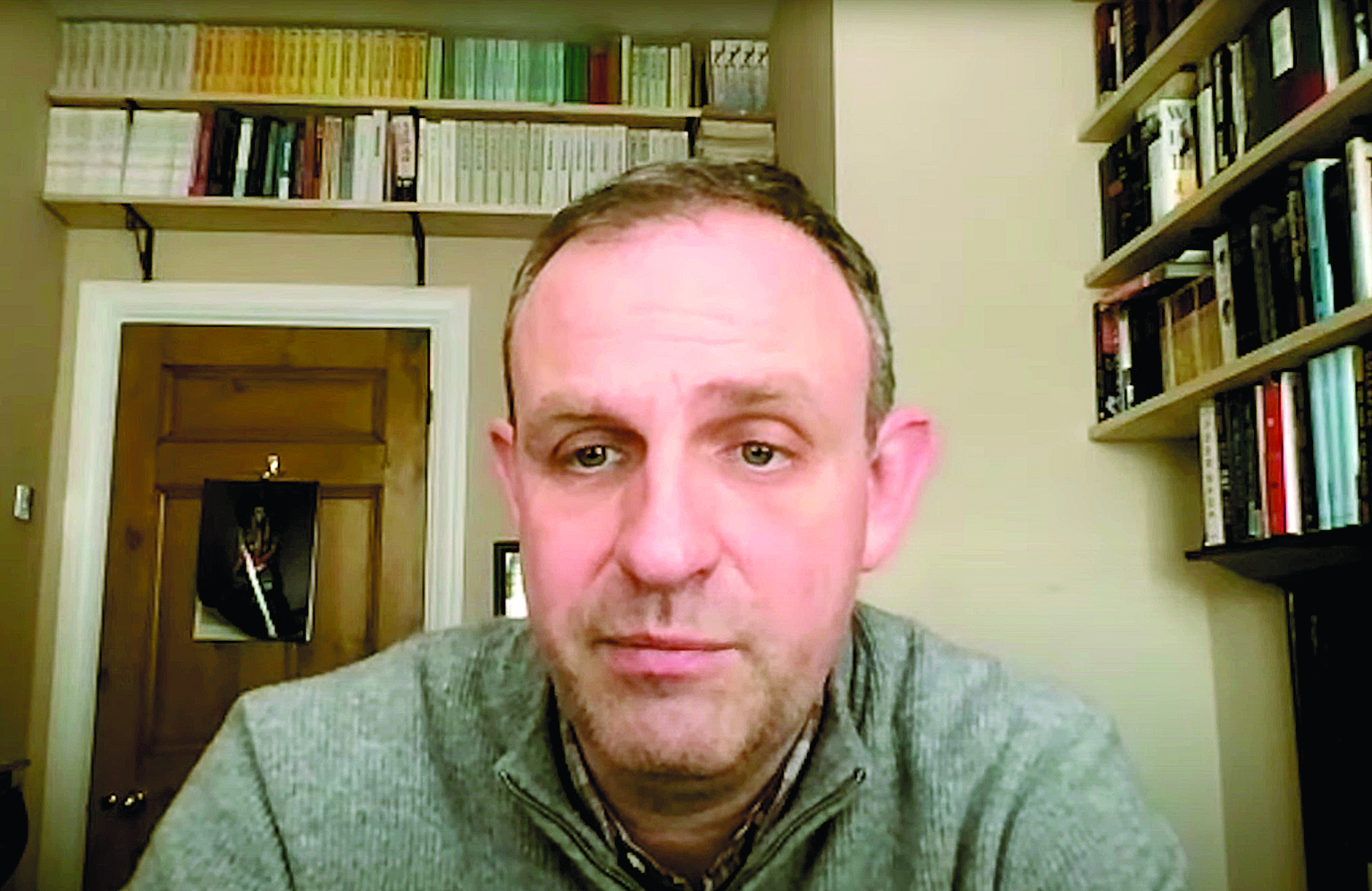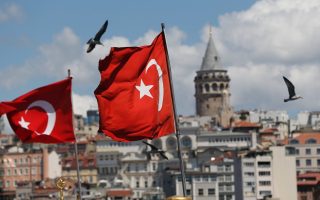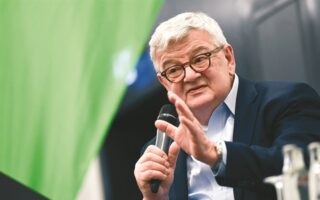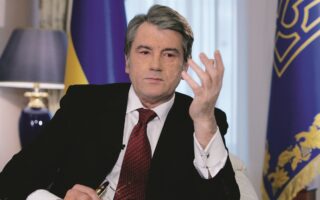West should not be seeking Russia’s ‘demise’
Respected historian Sergey Radchenko talks to Kathimerini about the possible consequences of an escalation with Putin over Ukraine
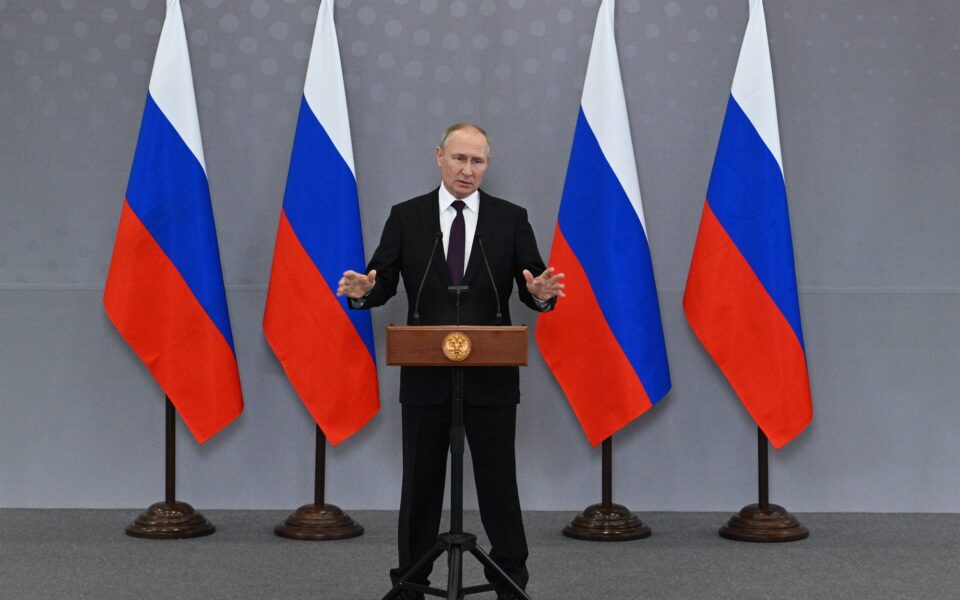
The Russian-born historian and Wilson E. Schmidt Distinguished Professor at the Johns Hopkins School of Advanced International Studies Sergey Radchenko calls on the West to set limits on the escalation of the war in Ukraine.
Speaking to Kathimerini, he describes the danger of a direct confrontation between NATO and Russia as “viable,” adding that an escalation includes the “nightmare scenario” of Russia deciding to launch nuclear strikes inside Ukraine. In this context, he considers it in the interest of the West not to completely weaken Russia and that it is more important for one side to preserve the other’s red lines.
However, Radchenko believes that Russian President Vladimir Putin is convinced that he can beat the West using energy and its economic and social implications. He explains why he does not subscribe to the view that we have entered a new cold war and believes that a challenge to Putin within Russia is not out of the realm of possibility.
He also notes that the war is also costing China, which has set clear limits on its partnership with Russia.
You hold the view that NATO should avoid an escalation with Russia in Ukraine at all costs. You also believe the West should completely avoid exhausting Russia. What is your reasoning?
A direct Russia-NATO conflict over Ukraine is a viable and a very disturbing scenario. For months, the West successfully avoided direct entanglement. Both Russia and NATO have respected informal red lines (NATO – by refusing to provide a no-fly zone the Ukrainians had insisted upon; the Russians – by carefully avoiding any attacks on NATO targets). However, an escalation is still possible. For example, the Kremlin may decide that it has no option but to resort to nuclear strikes inside Ukraine. The West could react with conventional strikes, which could in turn result in Russia striking targets in Western countries. These kinds of nightmare scenarios – while still far-fetched – are real enough that we should pause and think about the inherent dangers of a confrontation between nuclear powers. We cannot wish Russia away, so while helping Ukraine counter Russian aggression, we in the West must keep our eyes firmly on escalation-avoidance. Completely exhausting Russia militarily is not in itself a problem. What would be problematic for the West is if Russia were to become so weak that it succumbed to internal strife, because a civil war in a country that has 6,000 nuclear warheads is simply not in anyone’s interest.
Because of its energy dependence on Russia, public opinion in Europe quite often has the impression that Vladimir Putin is in a position of power and that he is not deterred by Western sanctions. Is it like that? How manageable is the cost of this war in terms of economic, military and human loss for Russia?
‘Russia is a very weak player. It has no ideology worth mentioning. So this is not a new cold war. It is actually a hot war, in Ukraine’
This war has been very expensive for Russia, not just in terms of direct expenditures on weapons and material, but also in terms of the economic costs of Western sanctions. However, for Putin, economic considerations play a secondary role. Fundamentally, he is convinced that he can outplay the West in the race to the bottom. Russia is an autocracy, and so it is relatively resilient in the face of public protests. But the West, facing higher energy prices, a potentially cold winter, will find it more difficult to adjust to new realities. So Putin is preparing to play the energy weapon – and in fact he has done so already. Europe has reacted by trying to decouple itself from Russian energy. Whether this is a sustainable policy, time will tell. But there is no doubt that Europe is facing an acute energy crisis, and the political consequences of this crisis are still to be fully grasped.
Is Putin’s dominance within Russia a given fact? After the invasion of Ukraine, the question arises as to whether conditions are emerging for contestation by mechanisms that would even be able to overthrow his regime.
This is not fully outside the realm of possibilities. There are tensions in the elite. Many are uncertain about the outcome of the war, but are unwilling to stick their necks out. But the exact outlines of the power struggle – if it is taking place – are hard to discern. What is clear is that Putin has created a system with many potential contestants, whom he sets against each other in the hope that they don’t all conspire against him. So far, we have not seen many defections from the elite. But much here depends on the continued progress of the war. If it keeps going as badly as it has up to now, we’ll see more tensions, and Putin will face greater threats. But the Russian system is such that it is very dangerous for any one actor to plot against the Tsar. Can you imagine a conversation in the bathroom stall in the Kremlin: “So… Viktor, what do you think about Vladimir Vladimirovich?” It’s just hard to see how anyone would dare to make this kind of move.
– And a question that doesn’t necessarily have an answer from third parties: What is Putin’s goal? Is there nostalgia for the Soviet Union, in terms of geopolitical influence? Are we heading for a new cold war?
Russia is a very weak player. It has no ideology worth mentioning. So this is not a new cold war. It is actually a hot war, in Ukraine. A war of conquest and domination on Putin’s part. Is he looking to restore the Soviet Union? I don’t think so. But he is clearly obsessed about Ukraine, because the Ukrainians challenged him. They “dared” to defy Putin, and for this he now wants to punish them.
What would be the good scenario in Russia’s relations with the West? Under what conditions would some form of peaceful coexistence be possible the day after?
Russia will not go away. The West should consider adopting policies aimed at communicating to Russia this basic premise: that it does not seek Russia’s demise; that it does not seek to “decolonize” Russia or to punish the Russian people (themselves victims of a hideous autocracy). The message should be that the West is opposed to Russia’s aggression in Ukraine – and just that. With luck, the Russians will see in time that their current misadventure is not in Russia’s long-term national interests, and not so much return to the fold as adopt a more neutral attitude, seeking nonalignment in an increasingly polarized world, characterized by Sino-Western rivalry.
Do you think the prospect of a Sino-Russian alliance has substantial potential, and, if so, on equal terms?
No, there is not much prospect for a Sino-Russian alliance. The Chinese are too pragmatic for that. The Chinese look after their own interests. They have benefited from Russia’s weakness, and they have no intention of being dragged along by the Russians into their misadventure in Ukraine, especially as this has very real economic costs for China. By and large, the Chinese have abided by the Western sanctions against Russia, which shows the limits to the Sino-Russian relationship, which is supposedly a partnership “without limits.” No, there are very clear limits.
